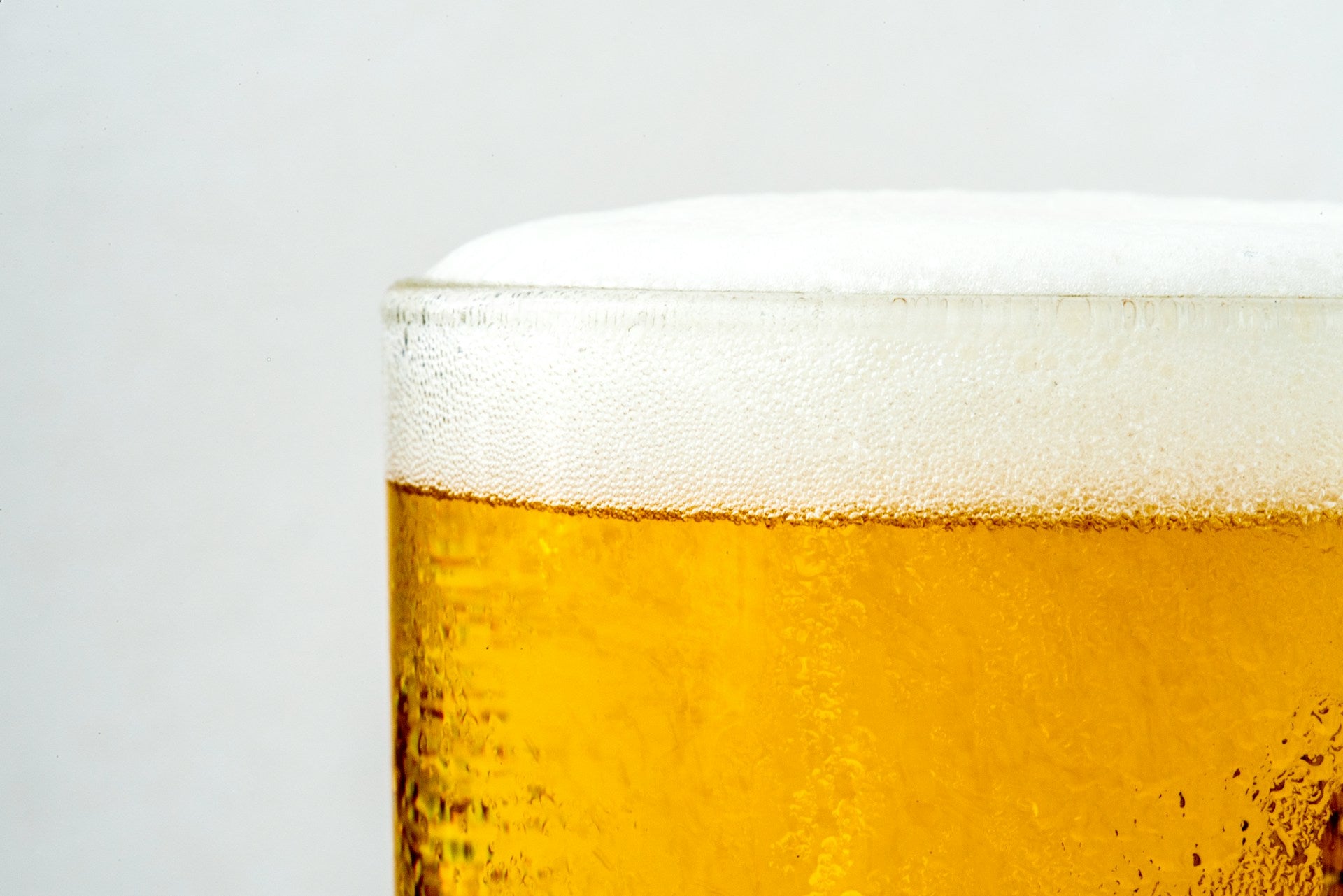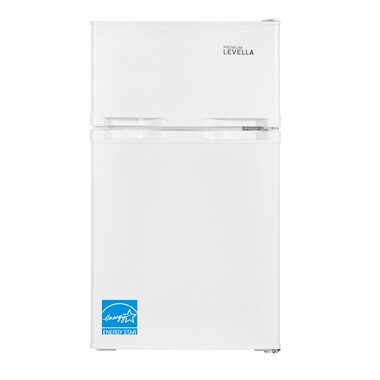Understanding Freezing Beer
Freezing beer is a common occurrence, especially when trying to quickly cool it down. However, understanding what happens to beer when it freezes and the potential risks involved can help prevent unwanted incidents.
What Happens When Beer Freezes?
When beer is placed in the freezer, the water content in the beer begins to freeze. As the temperature drops, ice crystals start to form, causing the beer to expand. This expansion can lead to changes in the texture and flavor of the beer.
| Temperature (°F) | State of Beer |
|---|---|
| 32 | Begins to freeze |
| 25 | Partially frozen |
| 20 | Mostly frozen |
| 0 | Completely frozen |
Freezing can also affect the carbonation levels in the beer. As the water freezes, the carbon dioxide (CO2) that gives beer its fizz can be forced out, resulting in a flat taste once thawed. Additionally, freezing may cause the beer's proteins to coagulate, leading to a cloudy appearance.
Can Beer Explode in the Freezer?
Yes, beer can explode in the freezer. As beer freezes and expands, the pressure inside the can or bottle increases. If the expansion is significant enough, it can cause the container to burst, creating a mess in your freezer and potentially leading to injury.
The risk of explosion is higher for sealed containers like cans and bottles. To avoid this, it's crucial to monitor the beer while it's in the freezer and remove it before it completely freezes. If you are unsure about the exact duration, refer to our article on how long can beer be in the freezer? for more detailed guidelines.
For additional information on freezer-related topics, you might find these articles helpful:
- can cheese be stored in the freezer?
- best way to defrost a chest freezer
- how long can steak be in the fridge?
Understanding the science behind freezing beer can help you make informed decisions and avoid potential mishaps in your kitchen or garage freezer.
Time Considerations
How Long Can Beer Safely Stay in the Freezer?
Freezing beer can be a tricky task. The length of time beer can safely stay in the freezer depends on various factors, including the alcohol content and the container. Generally, it is not recommended to leave beer in the freezer for extended periods.
| Beer Type | Safe Freezer Time |
|---|---|
| Regular Beer | 1-2 hours |
| High Alcohol Beer | 2-3 hours |
Keeping beer in the freezer longer than these recommended times increases the risk of the bottle or can exploding due to the expansion of the liquid as it freezes. This can lead to a messy and potentially dangerous situation in your freezer. For more detailed information on this topic, you can refer to our article on can beer explode in the freezer.
Effects of Freezing Beer for Different Durations
The effects of freezing beer can vary based on how long it stays frozen. Here is a breakdown of what happens to beer when frozen for different durations:
| Freezing Duration | Effects on Beer |
|---|---|
| 1-2 hours | Beer is extremely cold, possibly forming ice crystals, but generally safe to consume. |
| 3-4 hours | Beer is likely frozen solid. The can or bottle may distort or crack due to expansion. |
| 4+ hours | High risk of explosion. Quality and taste are significantly compromised. |
Leaving beer in the freezer for too long can affect its taste and quality. The freezing process can cause the beer to lose its carbonation, resulting in a flat beverage. Additionally, the flavor profile may be altered, making the beer taste different from its original state. For more on how freezing impacts beer, see our section on impact of freezing on beer quality.
To avoid these issues, consider using quick cooling methods for beer instead of freezing. These methods can rapidly chill your beer without the risks associated with freezing. For more tips on this, refer to our article on quick cooling methods for beer.
Thawing Frozen Beer
Thawing Beer Properly
If you accidentally freeze your beer, it's important to know how to thaw it properly to minimize any potential impact on its quality and taste. The key is to allow the beer to thaw gradually at a controlled temperature.
- Remove from Freezer: Take the frozen beer out of the freezer and place it in the refrigerator. This will allow it to thaw slowly and evenly.
- Monitor the Temperature: Ensure that your refrigerator is set to the appropriate temperature. For more information on optimal fridge temperatures, read our article on what should a fridge temperature be?.
- Avoid Heat Sources: Do not place the frozen beer in warm or hot environments, such as near a stove or in direct sunlight. Rapid temperature changes can negatively affect the beer's quality.
The following table provides a general guideline for how long it may take for a frozen beer to thaw in the refrigerator:
| Beer Size | Thawing Time in Refrigerator |
|---|---|
| 12 oz Bottle | 12 - 24 hours |
| 16 oz Can | 24 - 36 hours |
| 22 oz Bottle | 36 - 48 hours |
Safety Precautions When Thawing Frozen Beer
When thawing frozen beer, certain precautions should be taken to ensure safety and preserve the beer's quality:
- Check for Damage: Inspect the bottle or can for any signs of damage or leakage. If the container is compromised, discard the beer to avoid any health risks.
- Release Pressure Safely: Frozen beer can create pressure build-up inside the container. When opening, do so slowly and carefully to prevent any sudden release of pressure.
- Avoid Shaking: Handle the frozen beer gently to avoid disturbing the sediment and carbonation levels. Shaking can cause excessive foaming once the beer is opened.
For more tips on handling frozen items safely, visit our article on best way to defrost a chest freezer.
By following these guidelines, you can safely thaw your frozen beer and enjoy it without compromising its quality. For additional storage tips and quick cooling methods, refer to our section on proper beer storage tips.
Quality and Taste
Impact of Freezing on Beer Quality
Freezing beer can have a noticeable impact on its overall quality. When beer freezes, the water content inside it forms ice crystals. These ice crystals can alter the beer's texture and appearance. The freezing process can cause the beer to lose its carbonation, making it flat and less enjoyable to drink. Additionally, the separation of the beer's components can lead to a change in flavor and consistency.
| Quality Aspect | Impact of Freezing |
|---|---|
| Carbonation | Decreases, beer becomes flat |
| Texture | Altered due to ice crystal formation |
| Appearance | Cloudy or separated components |
| Flavor | Potential loss or change in taste |
Factors Affecting the Taste After Freezing
Several factors can influence how the taste of beer is affected after freezing. Understanding these can help you manage expectations and make informed decisions about freezing beer.
- Alcohol Content: Beers with higher alcohol content are less likely to freeze solid, thereby preserving their taste better than lower-alcohol beers.
- Type of Beer: Different types of beer react differently to freezing. For instance, lagers may lose their crispness, while stouts may retain more of their flavor.
- Duration of Freezing: The longer beer stays frozen, the more likely it is to suffer quality degradation. Refer to our section on how long can beer safely stay in the freezer for more information.
- Thawing Process: How you thaw frozen beer also affects its taste. Proper thawing can minimize the negative effects on flavor and carbonation. Learn more about thawing beer properly.
Freezing beer might not be the best option if you are concerned about maintaining its original taste and quality. For alternative methods to cool your beer quickly without freezing, see our tips on quick cooling methods for beer.
Alternatives to Freezing Beer
Freezing beer can affect its taste and quality. Instead, consider these alternatives for storing and cooling your beer.
Proper Beer Storage Tips
Storing beer correctly helps maintain its flavor and freshness. Here are some tips:
Temperature: Store beer at a consistent temperature, ideally between 45°F and 55°F. Avoid temperature fluctuations.
Light: Keep beer away from direct sunlight. UV light can cause skunking, affecting the taste.
Position: Store beer upright to minimize oxidation and contamination from the cap.
Humidity: Maintain a moderately humid environment to prevent corks from drying out in bottled beers.
| Storage Factor | Ideal Condition |
|---|---|
| Temperature | 45°F - 55°F |
| Light Exposure | Minimal |
| Position | Upright |
| Humidity | Moderate |
For more on refrigerator storage, see how should your fridge be organized and what should a fridge temperature be.
Quick Cooling Methods for Beer
If you need to cool beer quickly, there are several methods to achieve this without freezing:
Ice Bath: Submerge beer bottles or cans in a mix of ice and water. Adding salt reduces the freezing point of water, speeding up the cooling process.
Wet Paper Towel: Wrap a wet paper towel around the beer and place it in the freezer for 15-20 minutes. The evaporation cools the beer faster.
Spin Chill: Spin the beer in ice water to increase the surface area contact, cooling it more efficiently.
| Quick Cooling Method | Time to Cool |
|---|---|
| Ice Bath | 15-30 minutes |
| Wet Paper Towel | 15-20 minutes |
| Spin Chill | 5-10 minutes |
For more cooling solutions, check out our articles on undercounter beverage cooler fridge and top freezer refrigerator for garage.
These alternatives ensure your beer stays fresh and enjoyable without the risks associated with freezing.
Get Your Upgrade or New Addition at Fridge.com
Whether you're searching for your perfect fridge, freezer, wine fridge, beer fridge, ice maker, or kegerator, we have what you need.
Shop the world's best brands at Fridge.com.
We also have tons of awesome articles about kitchen stuff and home news. Enhance your home, garage, backyard, patio, and office with the coolest essentials. With every necessary type of residential refrigerator or freezer in our collection, we've got you covered.
Elevate your game and shop now at Fridge.com!


